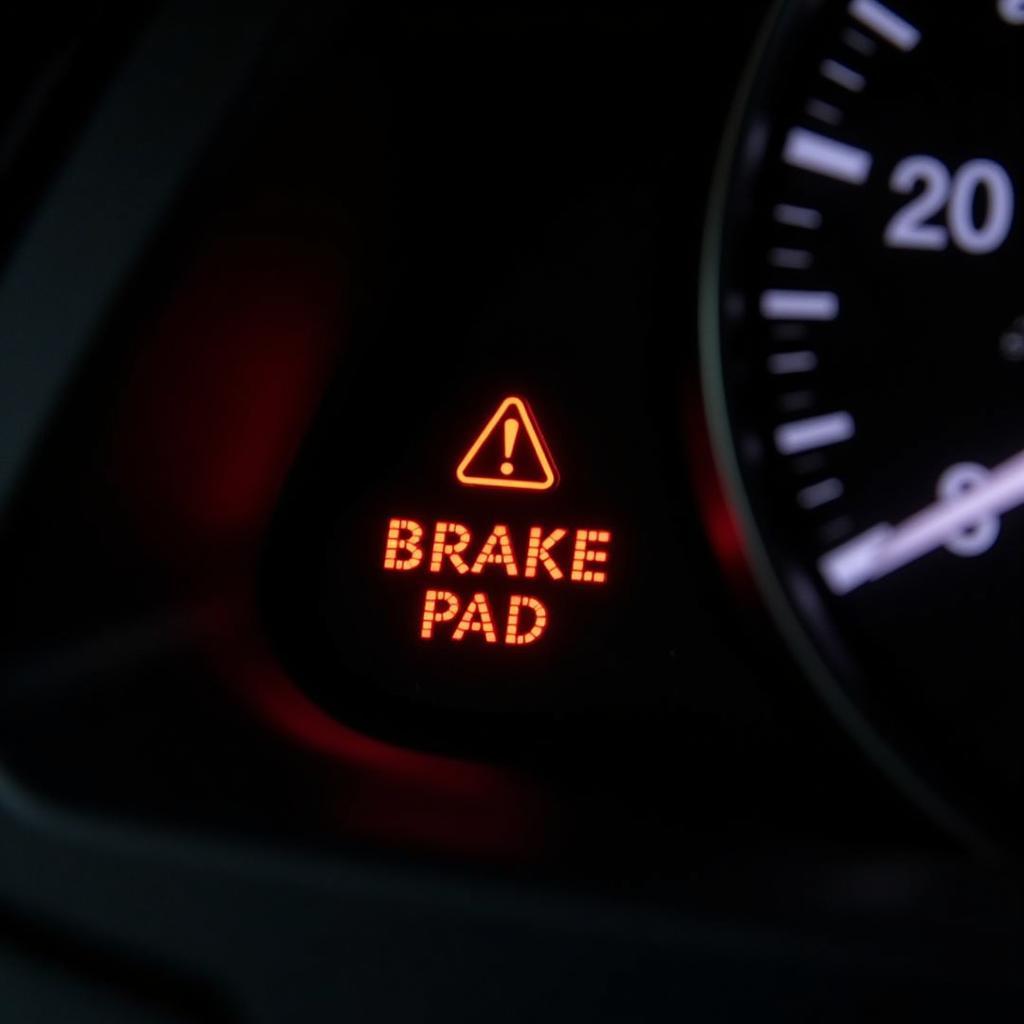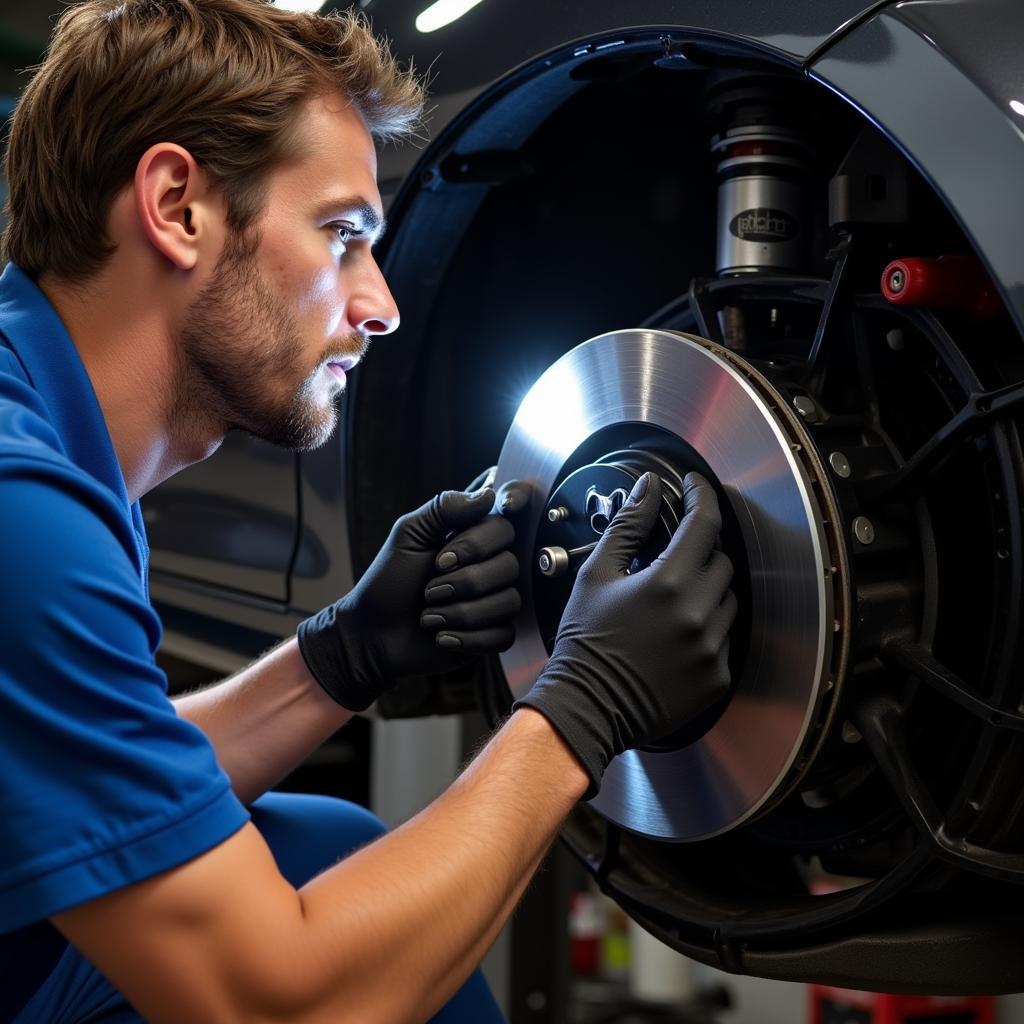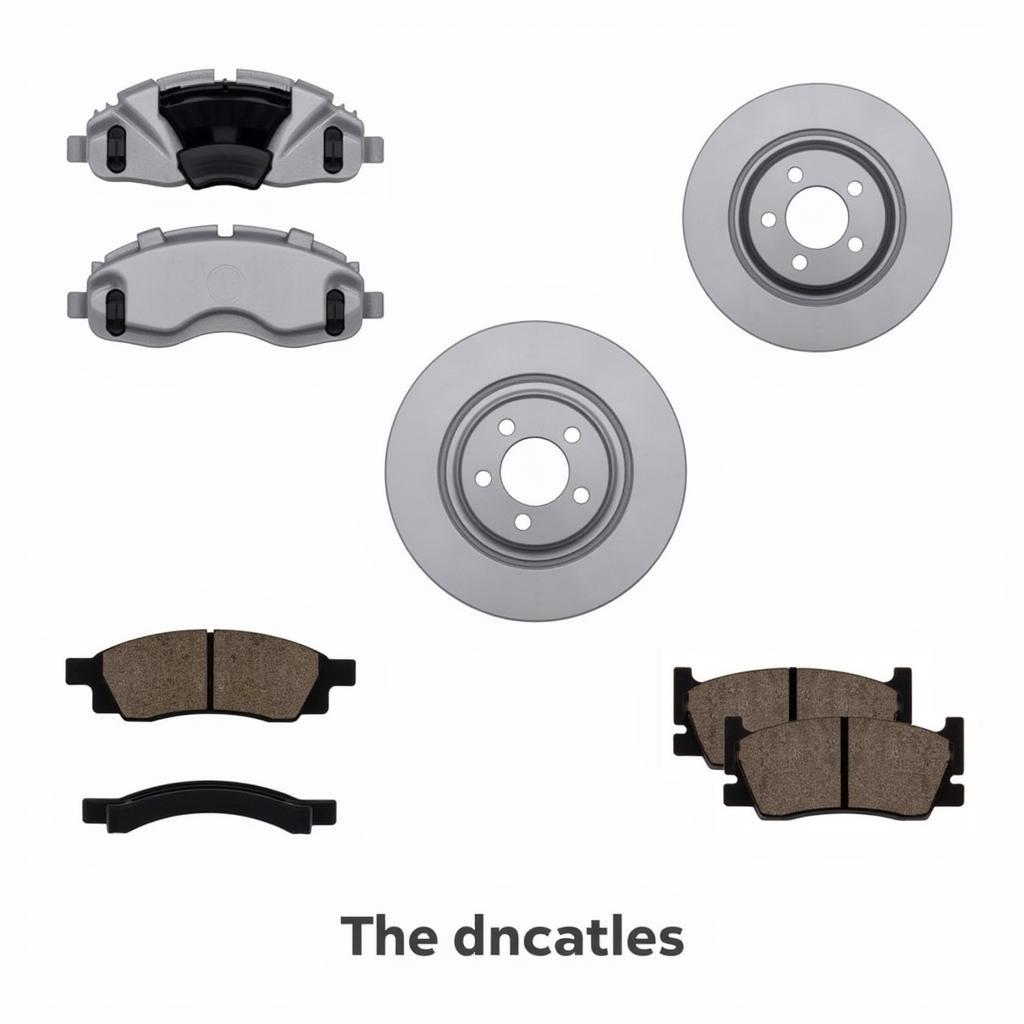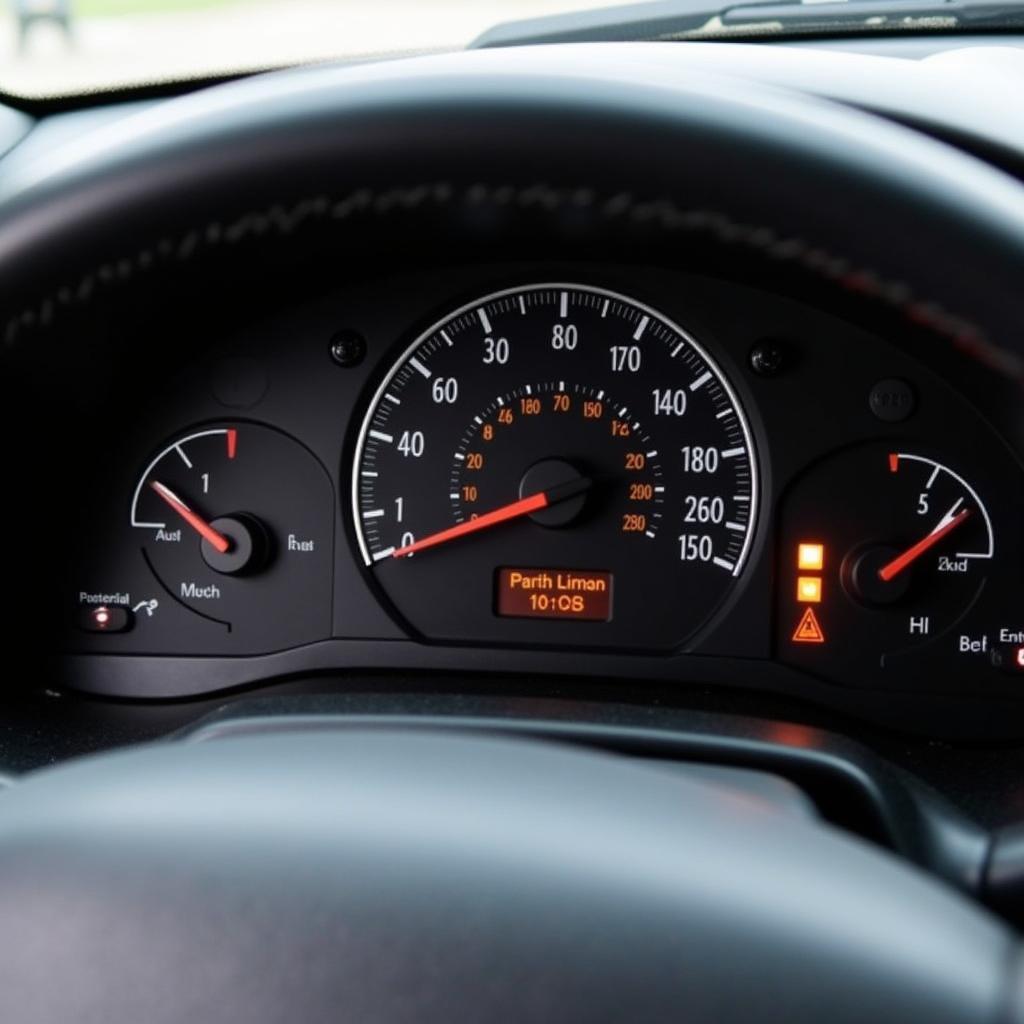The brake pad warning light on your VW Golf Mk5 is an essential safety feature. When illuminated, it signals that your brake pads have worn down to a point where they need to be replaced. Ignoring this warning can lead to reduced braking performance and potentially dangerous driving conditions.
This article will guide you through the common causes of a triggered brake pad warning light on a VW Golf Mk5 and outline the steps you can take to address the issue.
Understanding Your VW Golf Mk5 Brake Pad Warning System
Your Golf Mk5 is equipped with an electronic brake pad wear sensor system. This system continuously monitors the thickness of your brake pads. Once the pads wear down to a predetermined level, the sensor circuit is completed, triggering the brake pad warning light on your dashboard.
This light is typically amber or yellow and may be accompanied by a message on your multi-function display.
Why is My Brake Pad Warning Light On?
While worn brake pads are the most common culprit, several other factors can also cause the brake pad warning light to illuminate on your VW Golf Mk5. These include:
- Worn Brake Pad Sensors: The sensors themselves can wear out or become damaged over time, triggering a false warning.
- Damaged Wiring: A short circuit or break in the wiring harness connected to the brake pad sensors can cause the light to come on.
- Faulty Brake Fluid Sensor: In some cases, a faulty brake fluid level sensor can also trigger the brake pad warning light.
- Issues with the Instrument Cluster: A malfunctioning instrument cluster can lead to various warning lights, including the brake pad warning light, illuminating erroneously.
Troubleshooting the Brake Pad Warning Light on Your VW Golf Mk5
 VW Golf Mk5 Brake Pad Warning Light
VW Golf Mk5 Brake Pad Warning Light
Before assuming your brake pads need replacement, it’s crucial to determine the root cause of the warning light. Here’s a step-by-step guide to help you:
-
Check Your Brake Pad Thickness: Begin by visually inspecting your brake pads. Look through the spaces between the wheel spokes to assess the pad thickness. If the friction material is less than 1/4 inch thick, it’s time for a replacement.
-
Inspect Brake Pad Sensors: Examine the brake pad wear sensors for any signs of damage, such as fraying, cuts, or corrosion. Damaged sensors can trigger a false warning.
-
Check Brake Fluid Level: Ensure the brake fluid reservoir is filled to the appropriate level. Low brake fluid can also trigger the warning light.
-
Scan for Fault Codes: If the visual inspection doesn’t reveal the issue, it’s recommended to have your VW Golf Mk5 scanned for diagnostic trouble codes using a compatible OBD-II scanner. These codes can pinpoint the specific area of the braking system requiring attention.
 VW Golf Mk5 Brake Pad Sensor Inspection
VW Golf Mk5 Brake Pad Sensor Inspection
What Happens if I Ignore the Brake Pad Warning Light?
Driving with worn brake pads can have serious consequences:
- Reduced Braking Performance: Worn pads provide a smaller surface area for contact, significantly reducing your car’s ability to stop effectively.
- Damage to Rotors: Driving with worn pads can lead to damage to the brake rotors, resulting in costly repairs.
- Brake Failure: In extreme cases, ignoring the warning light can result in complete brake failure, putting you and others at risk.
Brake Pad Replacement and Resetting the Warning Light
If your inspection reveals worn brake pads, it’s crucial to have them replaced immediately by a qualified mechanic. When replacing the brake pads, it’s also recommended to replace the wear sensors to avoid future false warnings.
After replacing the pads and sensors, the brake pad warning light should reset automatically. However, in some cases, you may need to use a diagnostic tool to manually reset the light.
Preventative Maintenance for Your VW Golf Mk5 Brakes
 VW Golf Mk5 Brake System Maintenance
VW Golf Mk5 Brake System Maintenance
Regular brake system maintenance is essential for ensuring optimal performance and safety. Follow these tips:
- Adhere to Manufacturer’s Service Intervals: Consult your VW Golf Mk5 owner’s manual for recommended brake inspection and service intervals.
- Be Aware of Your Driving Habits: If you frequently brake hard or drive in hilly or stop-and-go traffic, your brake pads will wear down more quickly.
- Address Brake Noises Promptly: Grinding, squealing, or scraping noises emanating from your brakes often indicate a problem that needs immediate attention.
Conclusion
The brake pad warning light on your VW Golf Mk5 is a crucial safety feature designed to alert you to potential problems with your braking system. Addressing the issue promptly can save you from costly repairs and ensure your safety on the road. Remember, regular maintenance and timely attention to warning signs are key to maintaining a safe and reliable vehicle.

